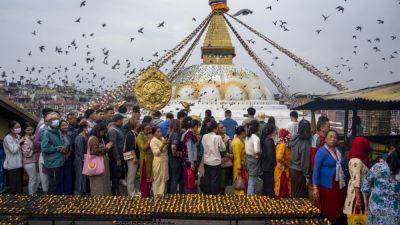The reality of courtesans in Netflix’s Heeramandi
Indian director Sanjay Leela Bhansali is known for his big-budget Bollywood production, featuring grand sets, star casts, meticulously choreographed dance sequences and lavish costumes, jewellery and furnishings. His new series for Netflix, Heeramandi: The Diamond Bazaar, lives up to these expectations.
Against this visually rich backdrop emerge the scheming, menacing and murderous courtesans of Heeramandi.
The series is set in Heeramandi, a historical red-light district of Lahore in present-day Pakistan. It unfolds against the backdrop of the Indian freedom struggle against British rule.
The show is an entanglement of plot lines – a murder investigation, a war of succession, a budding love story and a courtesan’s secret involvement in a rebellion against British rule.
Eventually, all characters and storylines converge around the central theme of anti-colonial nationalism. Driven by nationalist fervor, the courtesans call themselves “patriots” and willingly sacrifice their careers and lives for the country.
But who were the real courtesans?
Role models for female independence
The show takes creative liberties by distorting the lives and timelines of the historical courtesans.
The North Indian tawa’ifs (courtesans), or nautch-girls (dancing girls, as the British called them), were cultural idols, female intellectuals and entrepreneurs.
Dating back to ancient India, these women were trained in music, dance, fashion, poetry, repartee, etiquette, languages and literature from a young age. Typically following a system of matrilineal inheritance, courtesans passed down their professional knowledge and skills to talented daughters of the household.
Once trained, courtesans attracted patronage from royal courts, feudal







